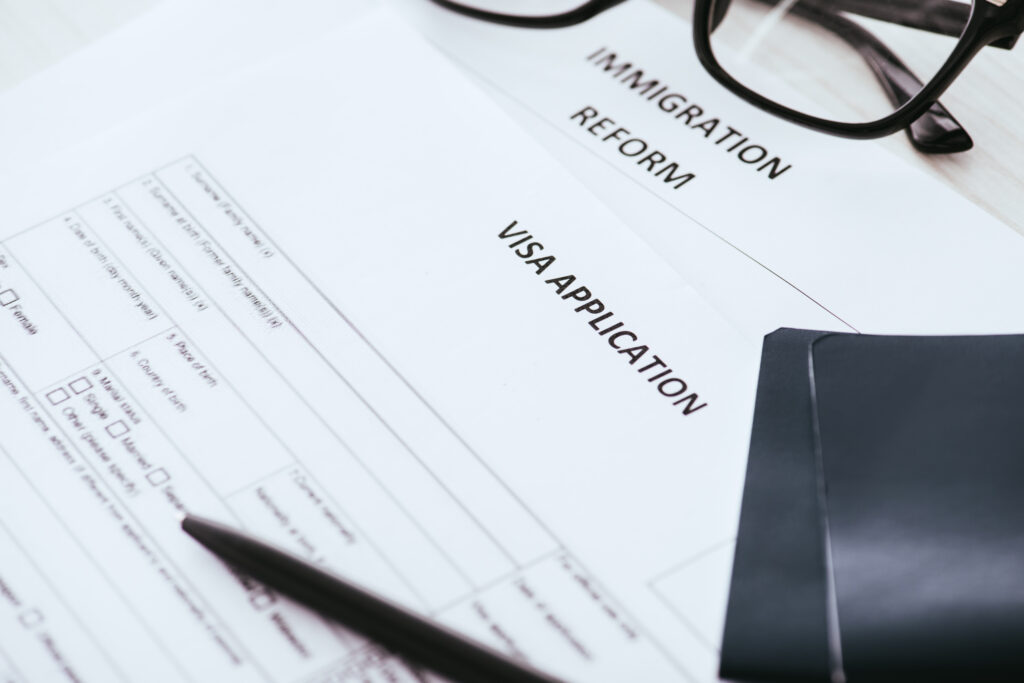Criminal record checks that affect Skilled Worker visa applications are a critical part of the UK immigration process, ensuring that applicants meet the standards of character, conduct, and suitability required to work in the country. According to the official guidance, certain roles, particularly in education, healthcare, and social care, require applicants to provide a criminal record certificate as part of their supporting documents. This measure forms part of UK Visas & Immigration’s (UKVI) wider approach to assessing risk, protecting public safety, and maintaining trust in the Skilled Worker route.
The Role of Criminal Record Checks in the Skilled Worker Route
“Character, conduct, and criminality” are embedded in the UK’s immigration rules: visa decisions are not made purely on technical eligibility but also on whether an applicant is considered a risk to the safety, security, or public good.
For the Skilled Worker visa route specifically, not every applicant needs to present a criminal record certificate; it depends on the nature of the role and whether it involves vulnerable groups (such as children or patients).
If your sponsored role is in education, healthcare, social care, therapy, or similar sectors, you’ll likely be asked for overseas criminal record checks.
Further, if an applicant has lived in more than one country, criminal record certificates are needed from each country in which they have lived for a defined period. GOV.UK states:
- If you’re under 28, you need a certificate from every country you’ve lived in for 12 months or more (in total) since you turned 18.
- If 28 or over, you need certificates from countries where you have lived for 10 years or more in total.
These checks help the Home Office to map not just UK criminal history but also overseas convictions, ensuring a more holistic risk assessment.
How Criminal Record Checks Are Used in Vetting?
What happens next when a criminal record certificate is submitted? Here’s a breakdown:
- Verification and authenticity
The certificate must be credible, issued by an official authority (police, interior ministry, national criminal registry), and often translated and certified if not in English or Welsh.
Fraudulent or falsified certificates can lead to refusal. - Content reviews
The Home Office caseworkers will examine all convictions — spent and unspent — as recorded, including any pending prosecutions.
They consider the severity, type (violent, sexual, financial, dishonesty), recency, and frequency of offences. They also assess whether the applicant shows evidence of rehabilitation or mitigating circumstances. - Balancing eligibility vs risk
A criminal record does not automatically disqualify someone. Rather, caseworkers weigh whether granting the visa would be “conducive to the public good.”
If the convictions are deemed too serious, or if there is a pattern of offending, the visa may be refused on grounds of criminality. - Cross-checks with immigration history and security data
In addition to criminal records, the application is assessed for immigration violations (e.g., overstays, breaches, misrepresentations) and flagged against security or intelligence databases if required.
The Applicant’s biometric data and identity checks may also be compared against watchlists or intelligence databases as part of national security clearance. - Ongoing obligations
Even after the visa is granted, holders are expected to abide by UK laws. New criminal convictions or behaviour inconsistent with visa conditions may lead to revocation or curtailment.
Recent changes in Security & Criminality Checks
The immigration landscape is continuously evolving. Below are notable 2025 developments relevant to criminal record scrutiny in skilled worker visa applications:
1. Stronger scrutiny and data-sharing
National Audit Office report on the Skilled Worker visa programme notes increased emphasis on security, including more rigorous checks of criminal record certificates and cross-border data sharing.
This means the Home Office might better access international criminal databases or receive flagged intelligence from foreign jurisdictions, increasing the reliability of background checks.
2. Character test thresholds and stricter policy
Home Office policy is applying a stricter “character test” across many visa categories, including the Skilled Worker route. According to current caseworker guidance, even minor convictions may need explanation — especially if they indicate a pattern or recent behaviour.
Applicants are now often required to provide a full history of all convictions, cautions, and current criminal charges, not just major ones.
3. Formal refusal grounds updated in July 2025 changes
As part of the July 2025 immigration changes (which include Skilled Worker rule amendments), the Home Office has reinforced that “unsuitable character or conduct” is a stronger ground for refusal.
Thus, criminality has become a more decisive factor for both new applicants and extensions.
4. Enhanced vetting for sensitive roles
Roles involving children, patients, or vulnerable persons (healthcare, education, social work) now face heightened background checks, including possibly International Child Protection Certificate (ICPC) requirements in addition to criminal record certificates.
Caseworker guidance confirms that in some cases, convictions from foreign jurisdictions disclosed to UK agencies may also appear in certificates.
5. Greater insistence on full disclosure
In 2025, it is more critical than ever that applicants fully disclose all convictions and relevant criminal history, no matter how minor. Failing to do so or withholding information may lead to refusal, even where the offense might have otherwise been acceptable.
Applicants who require Overseas Criminal Record Certificates
- Mandatory for certain occupations: Applicants from outside the UK who are applying for roles in education, healthcare, therapy, and social services must provide criminal record certificates for countries where they’ve lived outside the UK.
- Threshold of residence:
- Under 28 years old: certificate from any country you lived in for 12+ months (since 18)
- 28+ years: The requirement is for any country where you have stayed for a total of 12 months or more in the last 10 years, not a cumulative total of 10+ years.
- Dependants/adult partners: Where the main applicant’s role requires a criminal record certificate, adult partners or dependants may also be required to supply one.
- Exceptions or exemptions: In rare situations, applicants may seek an exemption from providing a certificate if a country does not provide one or due to other constraints; they must provide evidence and justification.
- UK-only residence: If an applicant has lived only in the UK outside their birthplace, they may not need an overseas certificate, unless applying for a role that still demands it. However, UK criminal history (via DBS or police checks) will be considered.
How Overseas Criminal Record Checks Feed into the Decision?
- The certificate becomes part of the character assessment: it is not a standalone filter but a piece of the whole eligibility puzzle.
- Negative findings are assessed with context: age of the offense, rehabilitation, and seriousness. Minor or spent offenses may not block a visa.
- Non-disclosure or suspicion of concealment is treated harshly — refusal may follow even if the underlying offence is minor.
- Outcomes may include refusal, request for further information, or in rare cases, referral to higher-level adjudication.
- For sensitive roles, the caseworker may combine the criminal record with security, intelligence, or child protection checks (ICPC) to form a more rigorous risk assessment.
Tips for Applicants & Sponsors to Mitigate Risk
- Obtain all necessary certificates early
Don’t leave criminal record checks to the last minute. Some countries may take weeks or months to issue a certificate. - Disclose everything fully
Even minor convictions or cautions should be declared. If they are on the certificate, hiding them is worse than openly explaining them. - Provide context and supporting evidence
If you have convictions, provide explanations, evidence of rehabilitation (e.g., training courses, character references), and the time elapsed. - Check certificate validity
Be careful about expiry. Some certificates are only valid for a fixed time window. - Verify that the issuing authority is recognised
Ensure the certificate is from an official criminal record body, properly translated, and authenticated. - Sponsors should plan with awareness
Employers and sponsors should anticipate delays for criminal checks, especially in roles requiring them, and factor in buffer time. - Seek professional legal or immigration advice
In complex cases with criminal history, a specialist immigration lawyer or advisor can guide how best to present the case.
Final Word!
Criminal record checks continue to play a crucial role in Skilled Worker visa applications, particularly for roles involving vulnerable groups or sensitive sectors. With the 2025 tightening of UKVI’s character tests, enhanced data-sharing, and stricter scrutiny of conduct, transparency and preparation have never been more important. Applicants and their dependents must provide full disclosure, contextual explanations, and ensure all documentation is accurate. Keeping abreast of the latest rules and reforms, including those introduced in July 2025, is essential for a smooth application process.
Follow SkilledWorkerMag for more expert guidance, updates, and practical advice on navigating Skilled Worker visas, immigration rules, and UK employment compliance in 2025 and beyond.



